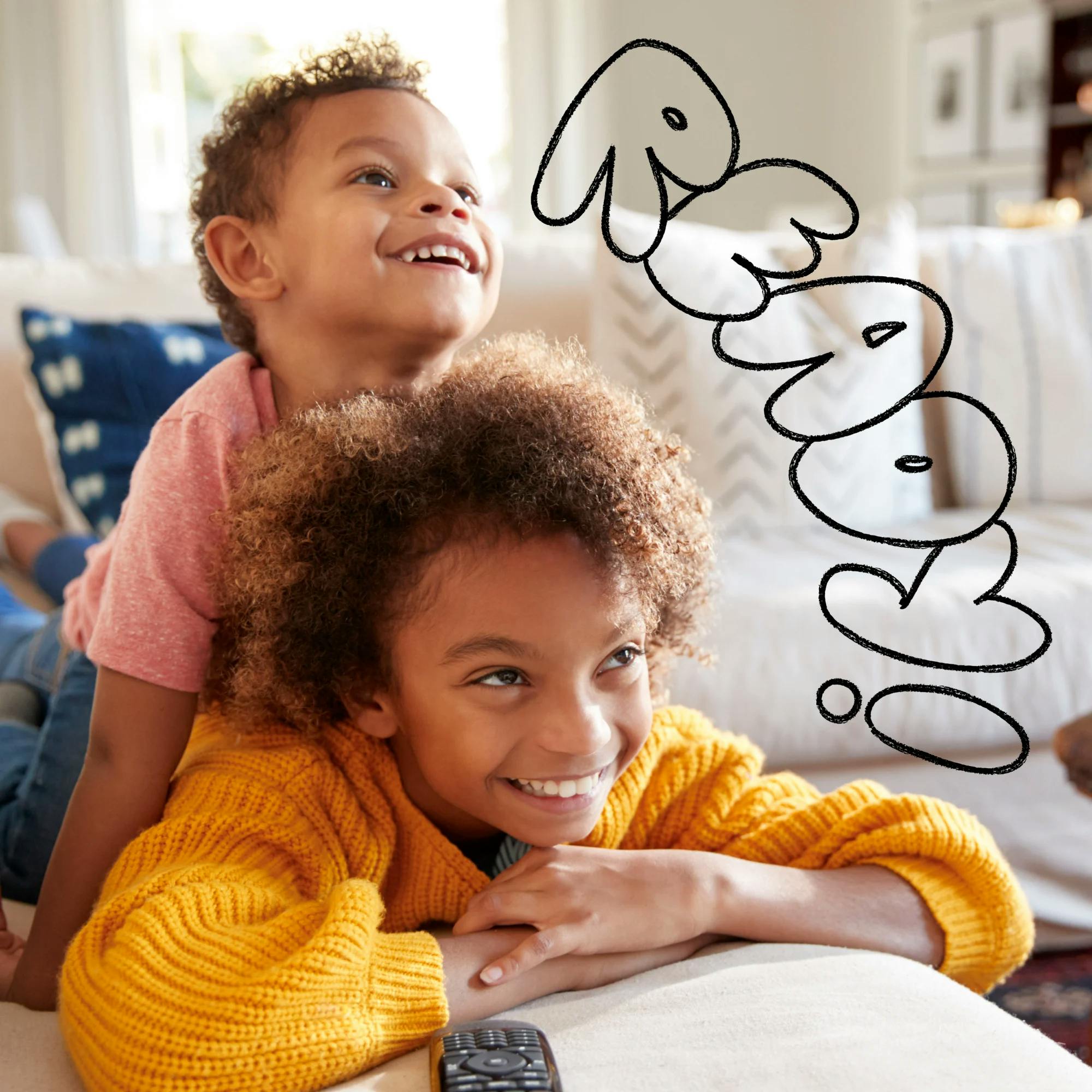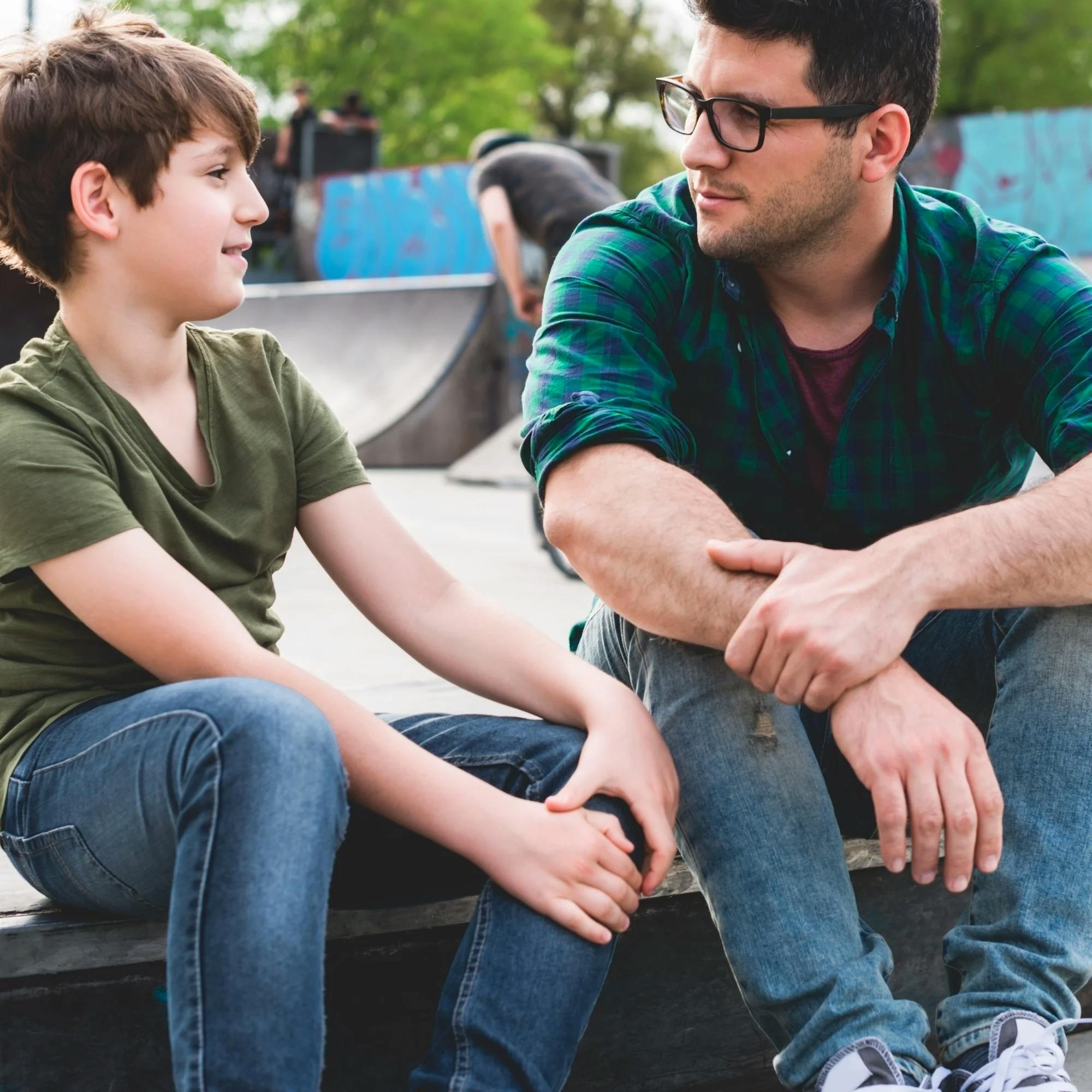Parents often wonder how to know if their child needs speech therapy–and what the right age is to start. Is 2 years old too young? Is middle school too late? We break it down in this expert guide to starting speech therapy! Discover the best age to begin, along with signs that your toddler might need speech therapy at ages 2, 3, and 4. We’ll also explain how speech therapy can help school-age kids and teens.
Knowing when to act can make all the difference, but keep in mind: It’s never too late to start.
Is your child on track?
Take our free screener to learn more about your child's development and whether a speech evaluation is recommended.
 Screener for children
Screener for childrenWhat is the best age to start speech therapy?
As a rule, the earlier a child can begin speech therapy, the better. This is because communication skills develop in a certain order. Each skill in speech and language development needs to be mastered in order to help the child reach the next one.
Think of it like a staircase. A child can’t move up the stairs if they’re having trouble climbing the first steps.
The sooner a child can achieve the skills they’re struggling with, the faster they can move along in their development. If they don’t get the help they need, they may struggle longer, missing more expected milestones and falling further behind.


What is the earliest age to start speech therapy?
Children as young as 12 to 18 months can benefit from intervention if they show early signs of a communication delay.
Most experts recommend talking with a pediatrician or licensed speech therapist as soon as you have a concern. Again, starting speech therapy early is more effective than waiting.
So how do you know if your child might have a speech delay or other communication issue? It’s helpful to know the expected milestones for each age. If your child is missing any, that might be a sign of a delay.
Let’s take a closer look at some key speech milestones for kids at ages 2, 3, and 4. You can also take our free online screener to learn more about whether your child would benefit from a speech evaluation.

How to know if your child needs speech therapy at age 2
By age 2, some signs that a child may need speech therapy include:
Uses fewer than 50 words
Doesn’t combine words to make two-word phrases, like “give me” or “more milk”
Uses gestures (like pointing) much more often than speech


How to know if your child needs speech therapy at age 3
A 3-year-old may need speech therapy if they have the following signs:
Doesn’t speak in short sentences yet
Speech is often hard to understand by non-family members
Difficulty naming objects
Difficulty answering simple questions
Frustration when trying to communicate
How to know if your child needs speech therapy at age 4
By age 4, some signs that a child may need speech therapy include:
Doesn’t use longer, more complex sentences
Speech isn’t easily understood by adults who know the child well
Struggles with asking questions
Difficulty following multi-step directions
Vocabulary and grammar seems younger than what other 4-year-olds are using
If your toddler or preschooler has any of the signs described above, a speech and language evaluation is recommended. You can get matched with a speech therapist for an online evaluation here.
Find the right speech therapist for your child
We'll match you with a licensed speech therapist who's experienced in your child's needs and available when you are.
 Get started
Get startedIs it too late for school-age kids or teens to start speech therapy?
Kids in elementary school–and even teenagers–aren’t too old to make progress in speech therapy. Older kids don’t have developmental milestones the same way younger children do. But a preteen or teen who needs speech therapy may show signs such as:
Difficulty pronouncing certain speech sounds
Speech that’s hard to understand
Stuttering while speaking
Difficulty clearly expressing thoughts and needs
Poor ability to answer questions
Difficulty telling a story and explaining something in a sequential order
Not easily able to follow social rules in conversation with others
Inability to understand sarcasm or figurative language
Here’s a closer look at how speech therapy can help an older child:
Articulation: Speech therapy can help teens learn to correctly pronounce sounds that they’re struggling with. Some of the trickier errors that can linger if not properly treated in childhood occur with the /s/, /r/, and /l/ sounds.
Dacarri's story
Follow along on the journey of a preteen boy working on articulation for clearer speech. "Now I have more confidence in how I sound."
 Read Dacarri's story
Read Dacarri's storyExpressive and receptive language: An older child may have trouble with language skills. Receptive language is a person’s ability to understand what is spoken to them. Expressive language is a person’s ability to make their wants, needs, and ideas known through clear communication.
If a preteen or teen has language problems, they may have trouble understanding questions asked in conversation or at school. They may also have a tough time following directions. It may be hard for them to construct sentences that make sense. They may misuse words or have a hard time telling a story or retelling an event.


Pragmatics, or social communication: This is a major area where some older kids need help. Pragmatics refers to the social aspect of language and communication. This includes social rules such as maintaining eye contact and staying on topic during a conversation.
Stuttering and fluency: For some teenagers, stuttering may be an issue they’ve dealt with all their life. But sometimes, stuttering can occur later in childhood or adulthood.


Can adults receive speech therapy?
Adults can certainly benefit from speech therapy. Similar to teens, adults may receive speech therapy for conditions they’ve had since childhood, such as stuttering, a lisp, or other speech sound disorders.
Speech therapy can also help adults with communication issues that arise later in adulthood, such as voice disorders or aphasia.
Claudia's story
With online speech therapy, Claudia got rid of a lisp she'd had since childhood--and learned to communicate with more confidence.
 Read Claudia's story
Read Claudia's storyGet matched with a speech therapist today
If you’re considering speech therapy for your child or yourself, contact us here at Expressable to schedule an evaluation. Our speech therapists work with people of all ages, from young toddlers to older adults. The sooner a person can begin therapy, the sooner they’ll start seeing the benefits. But remember, it’s never too late to take steps toward clearer, more confident communication.
FAQs about when to start speech therapy
1. What is the best age to start speech therapy? The earlier a child can start speech therapy, the better. It’s best to begin speech therapy as soon as a problem is identified. You can take our free online screener to learn more about whether your child would benefit from a speech evaluation.
2. How young can a child start speech therapy? Toddlers can typically start speech therapy at 12 to 18 months old if they’re showing signs of a communication delay.
3. How do I know if my toddler or preschooler needs speech therapy? If your 2-year-old, 3-year-old, or 4-year-old isn’t meeting the typical milestones for their age, or otherwise seems very frustrated when trying to communicate, speech therapy is likely needed. You can get matched with a speech therapist and schedule an online evaluation here.
4. Can school-age kids or teens receive speech therapy? Grade-school kids, preteens, and teens can make great progress in speech therapy. They can receive support with articulation, lisps, language problems, stuttering, social communication, and more.
How Expressable Can Help
Concerned your child isn't reaching age-expected milestones? Looking for communication support from a professional? Expressable is a national online speech therapy practice serving children and adults. We treat all major areas of communication and feeding, offer flexible hours including evenings and weekends, and accept most major health insurance plans. We’re proud to have earned more than 3,000 5-star reviews from our clients (4.9/5 average).
Our therapy model is centered on parent and caregiver involvement. Research proves that empowering caregivers to participate in their loved one’s therapy leads to better outcomes. That’s why we combine live, 1-on-1 speech therapy with personalized education and home practice activities for faster progress.
Communication is more than words. It’s how we share how we feel and show who we are. We’re here to help you or your child do just that.

 Abby Barnes, M.S., CCC-SLP
Abby Barnes, M.S., CCC-SLP











